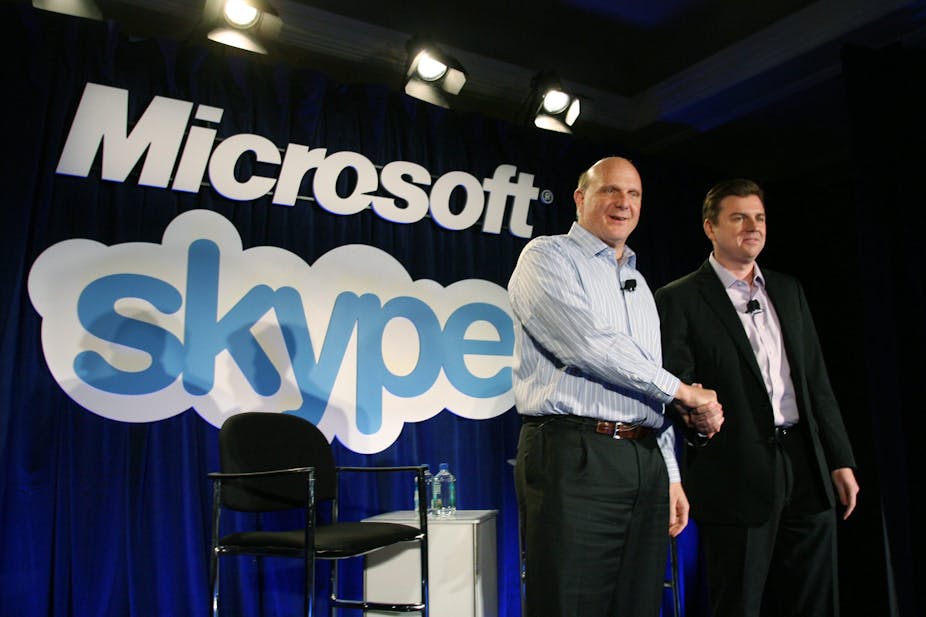So, Microsoft has announced it will buy Skype in a US$8.5 billion move that has left the technology and business worlds puzzled.
Owners of Microsoft shares might be most puzzled of all, maybe even tearing their hair out over a deal that, at first sight, seems to have significantly disadvantaged the software behemoth, both financially and technologically.
Why has Microsoft taken the risk?
In short, if this deal works out, Microsoft may have bought itself back into a game it was losing against internet upstarts such as Facebook and Google.
So, what makes Skype so valuable?
Skype is a service that provides VoIP (Voice over Internet Protocol) in which calls are transmitted as data packets over internet connections.
This technology operates in contrast to conventional phone technology, which relies on the creation of virtual circuits between the two ends of the call. VoIP allows the unification of telephone services with the internet and removes the need for a dedicated telephone line.
The popularity of VoIP and Skype is the primary reason for the increasing popularity of Naked DSL plans (i.e. internet plans that leave out the cost of the phone line).
There are many pure VoIP providers (such as Vonage) that provide telephone service for business functions (such as call centres) but Skype is not a pure VoIP implementation.
VoIP and more
Skype has its roots in the failed peer-to-peer (P2P) startup, Kazaa Technologies, that was brought to ground by lawsuits alleging that the platform played a role in the piracy of copyrighted films.
Peer-to-peer (P2P) technology involves dynamic connections between machines on the internet, connections that are used to share functions such as processing power or bandwidth.
Skype uses proprietary P2P protocols to perform computationally-intensive functions – such as routing calls – and uses bandwidth of connected computers to provide traffic intensive services, such as video calls.
It has also developed a suite of technologies to work around obstacles on the internet such as firewalls. This means that Skype provides better call quality and more features than any of its competitors.
Cloud wars
Skype’s many features – not to mention a bevy of patents – is likely to make it hard for Google or Facebook to compete in the VoIP market.
By integrating Skype’s P2P technologies into Microsoft products such as Office Live and Lync Communicator, the software giant can markedly improve its performance against rival offerings (Google Docs, for example).
This is a key advantage, particularly considering that the tech trend du jour is cloud computing, wherein users interact with software applications hosted on remote data centers.
But there are many challenges for Microsoft to overcome before it can realise the benefits of this purchase.
Integration of two diverse technologies is one. The other is the fate of Skype users running non-Microsoft operating systems (Mac and Linux, for example).
While Microsoft has pledged to support all operating systems in this new venture only time will tell if this is the case.
Whether the purchase of Skype is good move or investment folly remains to be seen.
Related coverage

